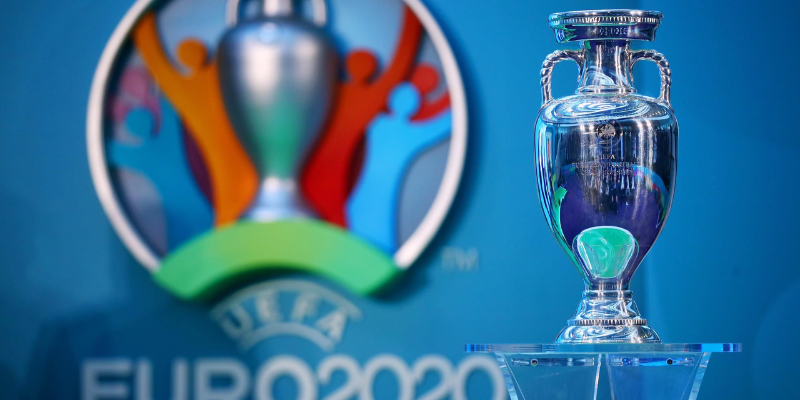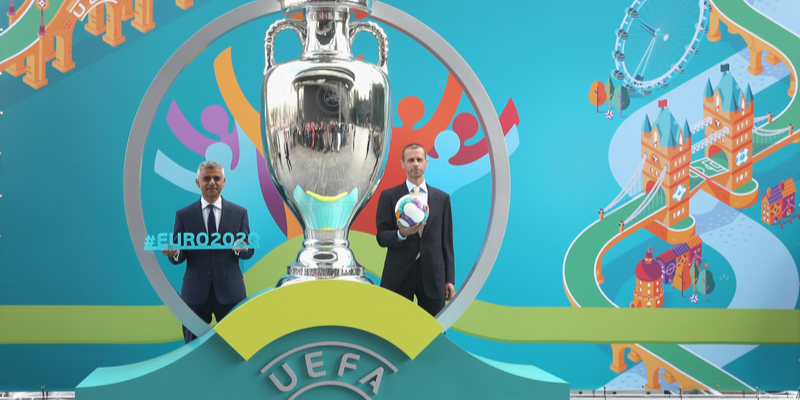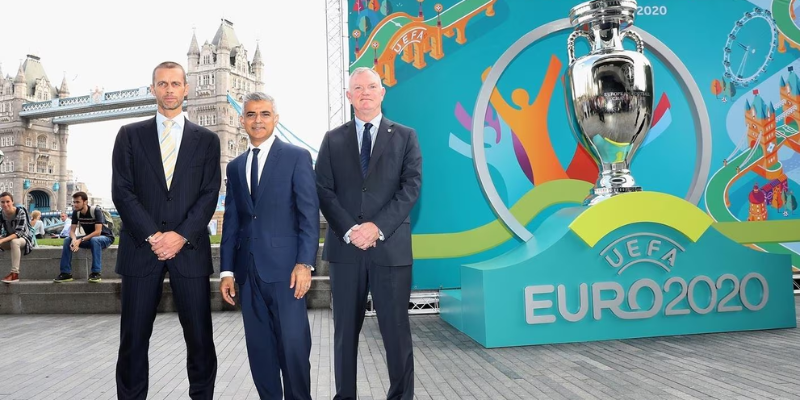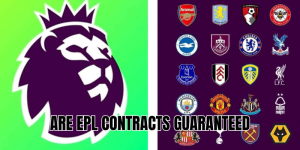In this article, HartGoal will take you across the continents to answer where was UEFA Euro 2020 held — and how the tournament made history with its multi-city format. UEFA Euro 2020 wasn’t confined to one country or stadium; instead, it spanned 11 cities in 11 different European countries, celebrating diversity, culture, and football. Below, we’ll break down the host cities, venues, context, and why this edition of the European Championship was unlike any before.
Origins of the multi-city format

Originally, the tournament was scheduled from 12 June to 12 July 2020, but the COVID-19 pandemic forced UEFA to postpone it to 11 June – 11 July 2021, while keeping the name Euro 2020. Despite the delay, the plan for a pan-European tournament across multiple host cities remained intact.
UEFA had originally selected 13 venues in 12 countries, but due to venue construction delays, and later spectator capacity and COVID restrictions, two of those cities were withdrawn.
The host cities and stadiums
Here are the 11 cities and stadiums that eventually hosted matches during UEFA Euro 2020, along with key matches they held:
- London, England – Wembley Stadium: Group stage matches, two Round of 16 games, both semi-finals, and the final. Wembley also hosted iconic moments like England vs Croatia and the final showdown.
- Rome, Italy – Stadio Olimpico: Opening match between Italy and Turkey, plus group games and a quarter-final.
- Munich, Germany – Allianz Arena: Hosted group stage games and a quarter-final.
- Baku, Azerbaijan – Olympic Stadium: Held group matches and a quarter-final.
- Saint Petersburg, Russia – Krestovsky Stadium: Group stage matches and one Round of 16 match. Tough logistical challenges and spectator limits because of COVID were involved.
- Budapest, Hungary – Puskás Aréna: Hosted group matches and a Round of 16 fixture.
- Seville, Spain – Estadio La Cartuja: Spain’s group matches and a Round of 16.
- Bucharest, Romania – Arena Națională: Group stage and a Round of 16 game.
- Copenhagen, Denmark – Parken Stadium: Group matches, Round of 16.
- Amsterdam, Netherlands – Johan Cruijff Arena: Group stage and one Round of 16.
- Glasgow, Scotland – Hampden Park: Group games and Round of 16.
Significant changes due to COVID-19 and other issues

While the idea was ambitious, real-world circumstances forced adjustments:
- Bilbao (Spain) was dropped and replaced by Seville, because local authorities could not guarantee adequate spectators amid pandemic restrictions.
- Dublin (Ireland) was also removed as a host city due to problems around guaranteeing fan attendance. Its matches were reallocated: some to Saint Petersburg, others to London.
These changes happened relatively close to the tournament start, which made logistics more complex for teams, staff, and fans.
Why this was a unique Euro in history

- Multi-nation hosting: For the first time, instead of one or two countries, 11 different nations co-hosted. It was a reflection of unity and commemoration for the 60th anniversary of the European Championships.
- Delay and name retention: Although played in 2021, the tournament name remained Euro 2020. This is now indelibly part of its identity.
- Spectator uncertainty: Each host had to confirm how many fans would be allowed in, with some stadiums operating at full capacity, others at reduced levels. That introduced unique tensions and atmosphere differences between venues.
Key moments tied to locations
- The opening match between Italy and Turkey took place in Rome at Stadio Olimpico.
- The final and both semi-finals were held at Wembley Stadium in London. The choice of Wembley for those critical matches underscored its status as one of Europe’s premier venues.
Conclusion
Where was UEFA Euro 2020 held? It spanned 11 cities across Europe—London, Rome, Munich, Baku, Saint Petersburg, Budapest, Seville, Bucharest, Copenhagen, Amsterdam, and Glasgow—each hosting different stages of this landmark tournament. HartGoal hopes this gives you a clear map of how Euro 2020 was spread out and why it stood apart in tournament history.
If you’re into deep stats, stadium facts, or match-by-match breakdowns, stay tuned with HartGoal. You might want to explore: which city hosted the most exciting match? How crowd restrictions affected player performances? Or what made Wembley a stage for history. Want us to dig into one of those? Just say the word!






